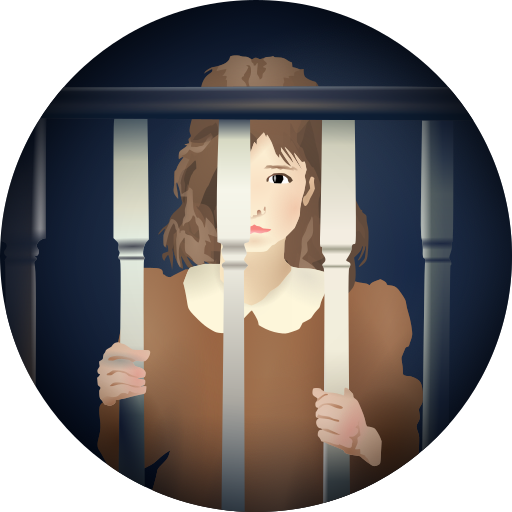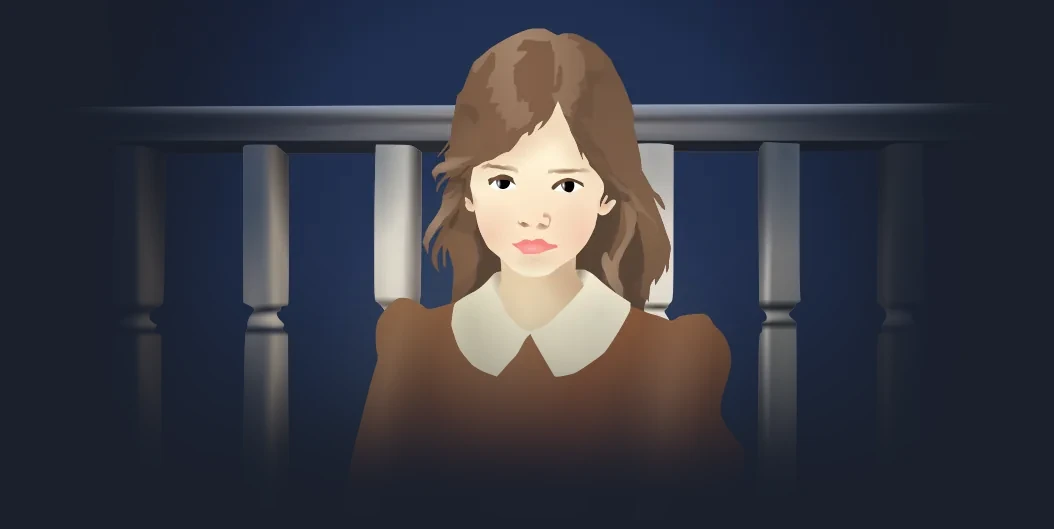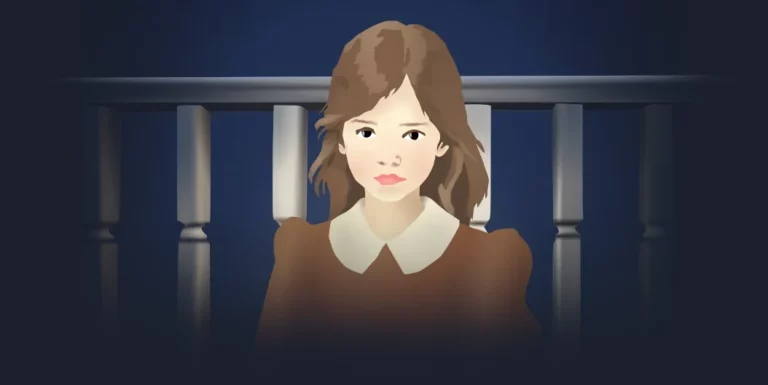Chapter I.XIII
Vitaly Ivolginsky
Always Visible (Another Prayer for the Dying Horror Genre)
First Act — Tempo De Construção Novamente
Chapter I.XIII
And then the inspector seemed to have an epiphany. He walked over to the desk and pulled out the bottom drawer. There, among some maps and typewritten sheets there was a photograph, which Galbraith immediately grabbed in his hands. The yellowed black-and-white photo showed an incredibly skinny man with a disproportionately large, clean-shaven head, dressed in a straitjacket. He smiled a toothless smile at the photographer, leaning his left hand on the hospital bed. Turning the photo over, Galbraith read the text written in black ink “Duncan (brain cancer), 1967”.
“This is definitely the same person”, the inspector said barely audible.
He himself did not understand who he was talking about – about the doctor himself or his long-interred patient. But this evidence finally confirmed that Galbraith was on the right track. Suddenly a loud stomp was heard from behind. He turned around – doctor Baselard stood on the threshold. His chest was shaking under his suit, and his face was twisted into a grimace of rage. It seemed as if his eyes were trying to pierce right through the guest. But the inspector did not lose his spirit – on the contrary, the state in which the doctor was now in set him in a decisive mood. Galbraith straightened up, stuck out his chest and raised his chin proudly.
“You killed this woodcutter twenty-four years ago”, he began in a solemn tone. “And this morning there was a little girl under your X-acto knife. She walked towards her destiny, could change the course of history, but unfortunately…”
The inspector was unable to finish his expatiation.
“What do you want from me, you worm? A confession?”, the old man screamed so loudly that Galbraith jumped to the side in surprise. “Here’s your confession!”
And at that very second Baselard ran to the desk. Galbraith prepared to fight back, but the doctor simply pulled out the top drawer of the table and, pulling out a stack of papers, threw them into the air. The sheets scattered throughout the room and slowly landed on the floor. The inspector resisted the urge to grab them and see what was written on them.
“I disposed with theirs souls like Lord God, because I felt like doing it, do you understand?!”, the owner of the apartment continued to scream in falsetto.
Having shouted these words, doctor Baselard took a little phial of yellow liquid from his pocket and began to unscrew its glass stopper.
“Only don’t come near me, you wronged, trembling creature!”, he said, lowering his voice.
After that, he threw back his head, throwing the entire contents of the phial into his throat. Galbraith involuntarily became worried – the doctor’s body trembled, a wave of trembling passed through him, but he did not even seem to notice it.
“You won’t go on?! Get out of here!”, he shouted in disgust.
Oddly enough, after these words, Baselard, grabbing the briefcase lying next to the door, left the apartment himself. The inspector, continuing to stand at the desk, heard the loud stomping of the doctor coming from the staircase. After waiting for the entrance door to slam, Galbraith finally decided to get out of here. His further actions were extremely unprofessional – he did not conduct a search and did not even close the door of the already abandoned apartment behind him. Remembering the doctor’s phrase “To England, on affairs”, the inspector had long ago realized that their meeting occurred due to a happy coincidence – If Galbraith had been even a minute late, Baselard would have left for the station long ago.
Having gone downstairs, Galbraith looked around – as he believed, the doctor had long since disappeared. The inspector hailed a taxi, and after a while he was dropped off right at the entrance to the police department. Getting out of the car, he noticed a young sergeant Saussure standing at the bench, who was engaged in an animated conversation with an elderly gentleman in an overcoat, from under which a greenish satin vest peeked out. When he saw Galbraith, the sergeant stopped the discussion and stared at him with some curiosity.
“How can I help you, mister inspector?”, he asked him politely. “Here’s the thing, one citizen is from Portugal”, the sergeant nodded at the gentleman in the coat. “Accompanied by three of his friends, he arrived here and wants to urgently talk with our superiors…”
The citizen from Portugal himself at that time stood silently next to Saussure and drilled Galbraith with the piercing gaze of his small eyes. His sparse gray hair was carefully combed back, and his mouth was twisted contemptuously, as if he hated being in the company of American policemen. The inspector, without saying a word, walked past them and stepped into the open doors of the department.
“But they don’t have time to wait, they’re in a hurry to get to the airport”, Saussure’s voice reached his ears.
The inspector, having passed through the threshold, was surprised to find that at that time there were unusually many people in the premises of the police department – some adults in civilian clothes, teenagers in tracksuits and old women in colourful dresses… Galbraith, without stopping, went to the office of mister chief inspector Schaeymoure. When he went up to the second floor and opened the door to his office, he looked up from his papers and, casting an indifferent glance at the guest, said:
“Well, Galbraith, let’s see what you dug up there. Will you please take a seat?”
He nodded towards the chair, but Galbraith, dryly thanking him, instead pulled out two photographs from his pocket and, placing them on the table in front of mister chief inspector Schaeymoure, waited until he turned his attention to them. Having carefully examined the photographs, Schaeymoure raised his full of barely restrained curiosity eyes to incomer.
“The first picture shows a woodcutter who died twenty-four years ago”, Galbraith started. “It happened in Gloucester, where I spent my childhood. The poor guy died right on the operating table – they opened his brain to remove the tumour. And in the second picture”, at this point his voice involuntarily trembled, “shows the Yonce family with their little daughter, who would have celebrated her eleventh birthday next year, but unfortunately she died this morning in a room at Randall Children’s Hospital after surgery to remove a vital internal organ.
Galbraith wanted to give his speech as formal a tone as possible, so as not to betray to mister chief inspector those feelings of empathy that he himself did not expect to feel in relation to the baby, whom he had known for at most one day. But Schaeymoure was too perceptive, and the inspector was overcome with mental turmoil. Galbraith interrupted himself – he suddenly felt that behind every word of the speech that he was now giving to his listener, there was almost physical pain, some kind of inexorable weight that had fallen on his heart.
“So…”, said mister chief inspector in the ensuing silence.
“The same person is behind both of these deaths – doctor Baselard, who was worked in the hospital I mentioned. I say “was” because this morning, just after the death of the child, the doctor packed his things and left for England, in order, I am sure, to avoid prosecution”.
Galbraith pulled out a pack of cigarettes from his pocket, pulled one out and flicked the lighter.
“I don’t expect him to return to America”, he added, raising the cigarette to his mouth.
After that, he went to the window and stopped, looking down at the street full of people. What was he thinking about at that moment? It is difficult to tell. Most likely, Galbraith was now remembering that he loves this life, loves Portland, its streets and all its inhabitants. Or maybe he indulged in the Great Boredom, caused, of course, not by some idle thoughts or thoughts, but just by gloomy experiences… He did not see what mister chief inspector Schaeymoure was doing at that moment, and he did not want to see – having finished his speech, Galbraith seemed to have thrown off an invisible, but incredibly heavy burden that had previously weighed on his soul.
Suddenly he heard an insinuating cough behind him. Having put out his cigarette, the inspector turned away from the window, realizing that this was an order to return to the desk.
“You are aware, Galbraith”, began mister chief inspector Schaeymoure. “You are clearly so concerned about the fate of this young lady that I feel obliged to send you to Jordan Thurlow”.
“Excuse me, but who that is?”, Galbraith took a step closer and bowed his head, as if he was afraid to miss a word.
“A person who is serving a sentence in Columbia River Correctional Institution. He was sentenced to eighteen years in prison on suspicion of raping an underage girl who was the daughter of his neighbours. The court accused him of taking advantage of her mother’s trust and forcing her to visit his house, where he put pressure on her”.
Listening to this story from mister chief inspector, Galbraith thought about how wonderful it would be if all the nasty things and sorrows that this world brought to people happened only to those who deserve it, and never to little, innocent children. But people are not divided into good and bad, he thought sadly. Meanwhile, Schaeymoure continued.
“Before his arrest, mister Thurlow, according to the victim’s parents, abused her at his friend’s apartment. In general, it is worth noting that the girl had a very emotional father, he was ready to literally do anything to put both men behind bars, but the court ruled that Jordan’s friend was not proven”.
“Well”, said Galbraith when Schaeymoure finished his speech. “And what do you suggest I do?”
“Ride to Columbia River Correctional Institution and ask to have an audience with this prisoner. As far as I know, he’s actually not a bad guy at all, but the power of public reprimand…”
“What will I get out of this?”, out of excitement, Galbraith interrupted the mister chief inspector.
“That it depends only on you, Galbraith”, he answered quietly. “Maybe peace of mind, or maybe a thirst for action. Either way, Thurlow’s words will bring clarity to your thoughts”.
Galbraith involuntarily sank into a chair. He did not dare take these words of mister chief inspector at face value, but some part of his soul understood that, unfortunately, this was true.
“I don’t undertake to decide what you need, I can only say how I imagine your further tactic”, Schaeymoure continued. “You want to go all the way and destroy that person, right?”
“Sorry, did you really…”, Galbraith wanted to ask again, but Schaeymoure raised his hand.
“This is a figurative expression”, as if consoling his listener, he said. “because no one is going to bring this matter to the complete destruction of the suspect. We are policemen, not executioners”.
“So what should I do right now?”, Galbraith began to lose patience.
“Go there”, mister chief inspector said with importance.
With these words, he put on his glasses and pushed a thick stack of papers towards him, making it clear to his interlocutor that he was free. It is possible that mister chief inspector intended to add “Farewell” to this, but then four people in civilian clothes burst into the office, among whom Galbraith recognized the same gray-haired man in a coat who was talking with the young sergeant Saussure. The inspector had no choice but to leave the Schaeymoure’s office and head towards the exit of the police department.
Going out into the corridor and closing the door behind him, Galbraith heard four Portuguese begin to loudly shout out some phrases in their native language, clearly trying to demonstrate mister chief inspector how much their case required the immediate intervention of the American police. Only when he reached the stairs leading to the first floor did he stop hearing their furious screams and calmly began to go down. Once on the first floor, the inspector hesitated a little, remembering the name of the colony that Schaeymoure had told him, and then he decisively pushed the door and went out into the sunlit street.


